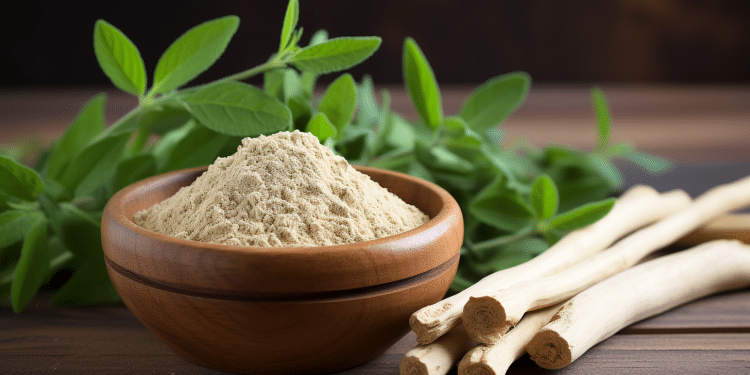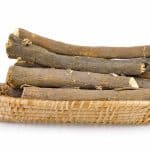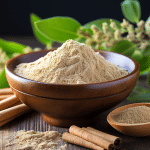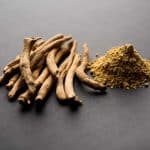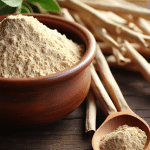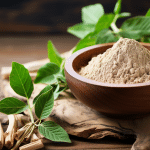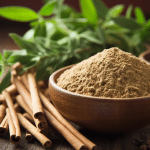If you are finding that you are struggling with a mental health problem or a mental illness, it is only natural to start looking for remedies and resources to help you cope. However, it may be helpful to look for scientific studies to support these remedies as well. This may help you to determine which paths are worth exploring, and which are unfounded trends.
Depression is not just about feeling sad. It can impact a persons job, relationships, family, and everyday life. Trying to cope with depression alone, without medication or therapy, can be challenging.
Even then, many people are concerned about potential side effects from prescription drugs, and are reluctant to take antidepressant medications. Instead, they might look for holistic options.
One of the natural remedies known as Ashwagandha has been getting a lot of attention recently. Ashwagandha has been touted as a possible cure for depression, but many are wondering whether it works well enough to replace antidepressant medications. While it might not work quite as well as an antidepressant, ashwagandha shows some promise in a few key areas. This article will shine some light on what ashwagandha is, and how it might play a part in your own therapy regimen.
Does Ashwagandha Help With Depression?
There is some evidence to suggest that ashwagandha may help alleviate depression and anxiety as Ashwagandha is most commonly used for its mood elevating benefits, although more studies are needed to make any conclusive claims. There are a few studies that delve into this, here, and here. For me personally, it’s definitely helped me feel more at ease throughout my day, and I definitely do not have as many bad depressive days where I go completely off the rails and collapse on the couch and never want to get up. I always suggest giving it a shot, and worst case scenario is that it does nothing for you, and you at least know and can move on.
Can You Take Ashwagandha with Antidepressants or SSRI’s?
Yes, you can take Ashwagandha with SSRI’s as there have been no negative side effects associated with taking Ashwagandha while also taking antidepressants (SSRI’s). Although it’s always recommended to work with you doctor if you plan on adding any new supplement to your daily regiment if you are on or plan on taking SSRI’s.
Can Ashwagandha Cause Depression?
No, there is no evidence that shows Ashwagandha to be the direct cause of depression or depression like symptons. Some in the ayuverdic community claim this will be the case for certain people, but that is based on theory and not practical application or scientific data. Ashwagandha is very safe with very low chances of side effects, so you can always try using Ashwagandha for yourself and determine how it makes you feel and if it’s providing you any benefits.
What Is Ashwagandha And What Can It Do?
Before going further, it is useful to know a little bit more about the Ashwagandha plant itself. Ashwagandha, sometimes called Indian Ginseng, Poison Gooseberry, or Winter Cherry, is a perennial nightshade shrub that has small, bell-shaped flowers and orange-red fruits. For centuries, humans have used stems and the fruits of ashwagandha plants to create medicines for various ailments, including anxiety, arthritis, asthma, hiccups, and many others. The medicinal herb is typically used in Ayurveda, an alternative medicine system originating in India. In the U.S., extracts from Ashwagandha are sold at health stores across the country, especially for the plants anti-anxiety benefits.
Ashwagandha is an adaptogen, meaning that it supports your body’s natural ability to fight off stress. Extracts from the ashwagandha root, in particular, are used to help lower your cortisol levels. Cortisol is the stress hormone, and having too much of it may cause anxiety. Because it reliably lowers cortisol levels, ashwagandha is a helpful natural option that may help people who are experiencing minor anxiety. If you are experiencing issues with sleep, it is likely related to high stress levels.
Ashwagandha has been used as a sleep aid too. In fact, the plants species name, somnifera, in Latin means sleep-inducing. Talk with your doctor to see if taking ashwagandha may help lower your stress levels and help you sleep more easily. Dietary supplements that contain ashwagandha are also sold in large quantities in the United States, but there is little evidence of their efficacy in this area. It is probably best to talk with your primary care doctor or practitioner before considering ashwagandha.
Both ashwagandha and extracts of ashwagandha are fairly strong, which can be quite off-putting for those who are sensitive to the scent. To give you an idea about the scent of the herb, many have often likened the scent to a horses. In fact, Ashwagandhas name comes from two words in Sanskrit, meaning horse and odor, respectively. In the past, some thought the plant might provide you with strength and viability similar to that of a horse. If you cannot stand the smell, it may not be an ideal remedy for you.
While some studies, such as this double-blind study, show that ashwagandha may be helpful in managing mild anxiety, further research is needed to establish if it is an effective option to treat depression as well. Claims Ashwagandha may be helpful for treating depression are at present just anecdotal. Consider talking with your doctor to see if this herbal remedy is a good fit for you. They can look at your health history to determine any risks, as well as compare ashwagandhas utility against other anti-anxiety medications.
